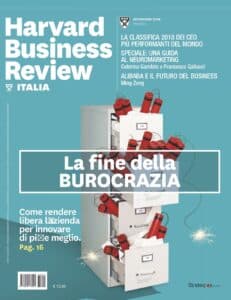
Will machines steal our jobs?
15 November 2018
Emotional Behavioural Analysis
26 November 2018The strategic value of emotional competences

Emotions have always been discouraged in our society, and for a long time even in the world of work they had no place. In the wake of thinking from the school benches, a rational, clear-headed and detached mind was considered the best requirement for a good job performance. Little room was always left for emotions, because they were at odds with the idea of efficiency. To be called ’emotional’ was tantamount to being considered weak; there was no room for sadness in this scenario, otherwise one was immediately branded as depressed. The idea of being able to keep reason and emotions separate is a thought that has lived long within our culture, but this is not possible as well as wrong.
SC
The merit of the studies on emotional intelligence, starting with the work of Salovey and Mayer (1995), which then came to the general public through Daniel Goleman’s vast popular work, is that it has made us realise the fundamental role that emotions play in situations long imagined as the exclusive domain of rational logical thought, such as decision-making problems and risk assessment. Two Nobel Prize winners on these topics (Daniel Kahneman, 2002 and Richard Thaler, 2017) are the best testimony to the value of this research.
This momentum has given rise to a construct that effectively synthesises a set of qualities:
- knowing one’s own and others’ emotions
- knowing how to manage them
- motivating oneself
- being able to use these skills in relationships with others
.
.
.
qualities easily attributable to effective behaviour in relationship life and in the management of complex problems.
Today, fortunately, the scenario has changed, and companies are increasingly asking us to help their managers improve these skills. There are now many studies confirming that certain patterns of emotional skills are predictive of effective work performance. The emotionally intelligent manager is able to manage his or her own emotions, is attentive to what is happening in the relationship dynamic, values the non-verbal component of communication, and is able to assess behaviour in order to manage his or her employees constructively.
However, the awareness of the strategic importance of these competences cannot be limited to isolated cases. Emotional competence must become widespread knowledge and awareness, capable of permeating the entire organisation. It is therefore necessaryto promote a change in organisational culture, if we want to imagine emotionally intelligent work groups, and to do this we must be able to generate more open and flexible models of confrontation and communication, it is necessary to renounce easy shortcuts and be willing to accept greater complexity: nurturing listening, mutual trust and a climate of cooperation. In overseeing these processes, the role of HR managers becomes crucial, who also have the responsibility to act as ‘sponsors’ in the creation of a new managerial culture. This is an important awareness, which becomes crucial when the scenario is marked by profound changes, a climate of uncertainty and increased complexity.
All around us there is a world that is changing at an impressive speed: technological innovation, the effects of globalisation, an increasingly complex and multi-ethnic society, the enormous amount of information to be managed, frenetic communications increasingly inattentive to the emotional-relational component. Situations that understandably generate fear and a sense of inadequacy in many people, who fear they do not have sufficient resources to adapt to changes of this magnitude. When the reality to be faced takes on these connotations (and this is happening more and more often today), it is no longer possible to rely on ‘common sense’ or the impromptu sensitivity of the voluntarist on duty. Change management processes often fail precisely because they are deaf and blind to listening to and managing the emotional components of the population involved. The emotional dynamics that run deep are sometimes so intense that they sabotage the most strategic transformations.
In the workplace, emotions must be recognised and listened to. Today we have the knowledge, the skills and the support of scientific research to be able to do this: to transform what for too long has been seen as a critical issue to be defended against into a valuable resource to meet the challenges of the future.



